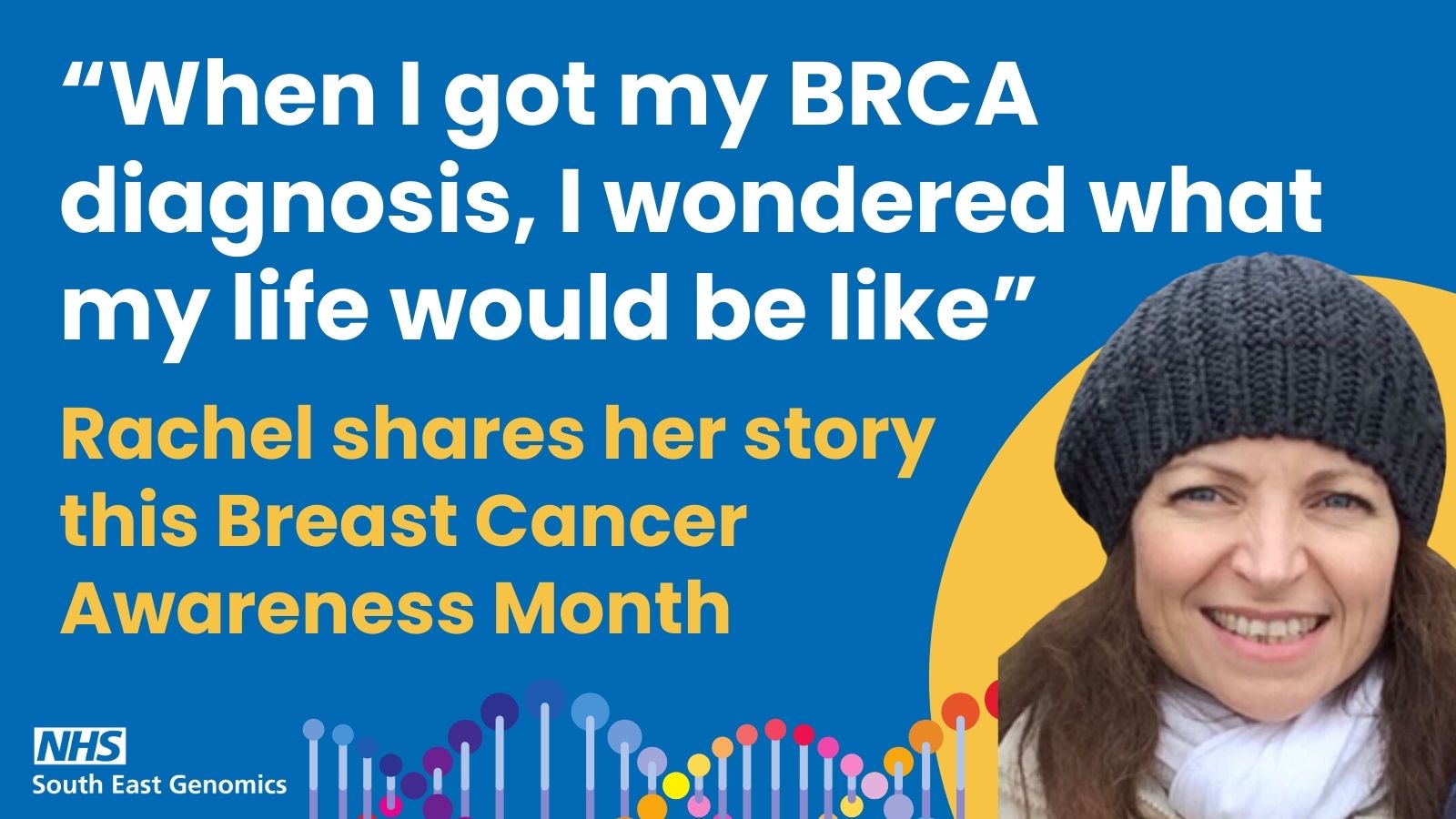
Rachel has always been very aware of breast cancer after her Mum and Aunt both had breast cancer at an early age. Their experience motivated Rachel to visit her GP who listened to her concerns and put her on the high-risk family register, which opened up the opportunity to have a mammogram every year.
It wasn’t until some years later when her Aunt, who lives in America, was diagnosed with ovarian cancer and a second case of breast cancer that anyone in her family thought about genetic testing.
“My Aunt was offered genetic testing in the US and I thought to myself, ‘I should probably get tested too.”
Rachel’s Aunt tested positive for the BRCA gene variant which can dramatically increase your chance of developing a number of cancers.
“I knew I wanted to get tested as well. I didn’t give it much thought – I was motivated by the need to be here for my son who was 5 years old.”
Not knowing anything about genetic testing, Rachel made an appointment with her GP and was immediately referred to Guys Hospital for the blood test. Before any genetic test, people spend time with a Genetic Counsellor to talk through their options and explore how they will cope with the results.
Rachel knew she had a 50/50 chance of carrying the gene and hoped her result would be negative. After a short wait, she received a letter saying that she too had the BRCA gene variant. Having seen her family and friends already go through breast cancer, and having been told that preventative surgery was an option, she knew she could make decisions to protect herself.
“When you get the BRCA result, there are no definites. It doesn’t mean you will definitely get cancer. I doesn’t mean you will die. You do have options.”
After exploring her options, Rachel was referred for a preventative mastectomy with reconstruction at Maidstone Hospital. But then the Covid pandemic hit and the hospital had to make the difficult decision to cancel the surgery.
“I felt like a ticking time bomb. I just had to sit at home and hope I didn’t get cancer.”
A year later, the surgery went ahead and Rachel has recovered well. “My little boy has been my motivation. I wanted to do everything to protect him and be here for him. That doesn’t mean it has been easy though. I also know I have a 50/50 chance of passing the gene on to him, but he can’t get tested until he’s 18, so that plays on my mind.”
Thankfully Rachel got in touch with BRCA Kent which is a support group for women who like Rachel, carry the BRCA gene.
“I wasn’t sure if I would need a support group, but I started asking a few questions on their Facebook page and they helped me so much. The women in the group shared all their personal experiences as well as helpful tips on what to take to hospital. Brilliant advice such as pack a straw because you can’t move easily to drink. BRCA Kent even provided me with drain bags for after the surgery. They showed me that it was ok to be scared and angry. They definitely helped me to cope.”
My Aunt gave us the opportunity to get tested. She might have saved our lives
Rachel’s sister and brother have both since had genetic testing and discovered that they too carry the BRCA gene variant. Rachel’s brother went onto a monitoring programme at Guy’s Hospital and has annual PSA tests for prostate cancer.
They are all extremely thankful that their Aunt made the decision to be the first to get tested for the BRCA gene.
Rachel is now the same age as her Mum was when she had breast cancer and Rachel has gone on to have her Fallopian tubes and ovaries removed. She now benefits from a Menopause Consultant at Medway Hospital who supports her to deal with her surgically induced menopause.
“Now that I am further down the line, I feel better and I’m getting used to my ‘new’ body. A whole community of women has opened up to me too. If I had never been tested for the BRCA gene, I wouldn’t have met them and I might have been dealing with having breast cancer instead.”
Genetic testing is supported by the South East NHS Genomic Medicine Service which covers Kent, Medway, Sussex, Surrey and South London. Our role is to embed genomics and genetic testing into routine NHS care and ensure everyone can benefit from the new research and technology that is now available.
Rachel and her siblings all carry the BRCA gene variant which can increase their risk of developing cancer. Only 10% of breast cancer cases, as well as other cancers such as ovarian and bowel cancer, are caused by an inherited gene.
If people have a strong family history where there are multiple cases of early onset breast or ovarian cancer, then they may benefit from genetic testing. However, if there is no evidence of cancer in the family, then there is no need to have a genetic test.
For people who have the BRCA gene, or other risk increasing genetic changes, then other family members can be offered a predictive genetic test to determine their risk.
